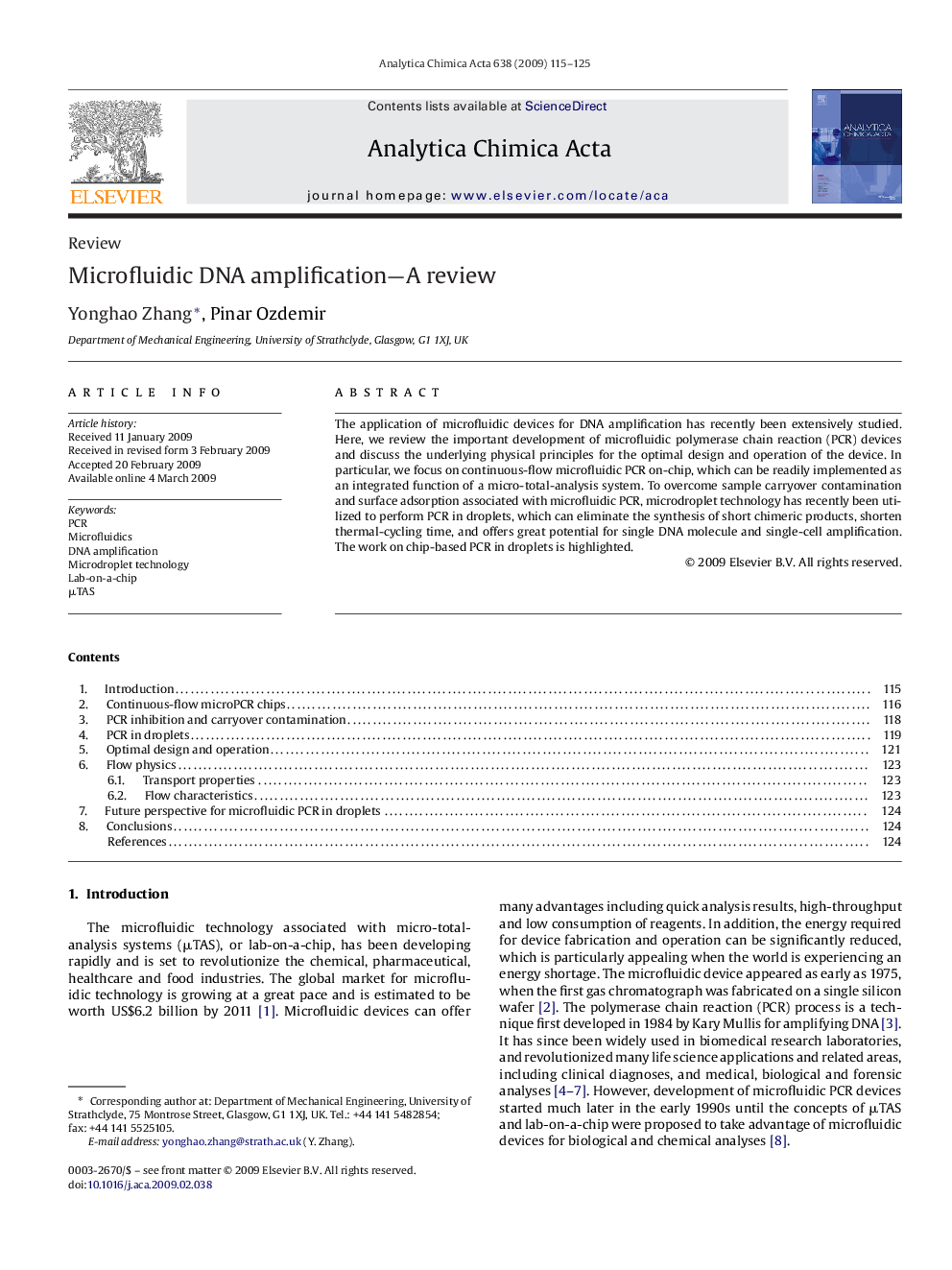| Article ID | Journal | Published Year | Pages | File Type |
|---|---|---|---|---|
| 1168700 | Analytica Chimica Acta | 2009 | 11 Pages |
The application of microfluidic devices for DNA amplification has recently been extensively studied. Here, we review the important development of microfluidic polymerase chain reaction (PCR) devices and discuss the underlying physical principles for the optimal design and operation of the device. In particular, we focus on continuous-flow microfluidic PCR on-chip, which can be readily implemented as an integrated function of a micro-total-analysis system. To overcome sample carryover contamination and surface adsorption associated with microfluidic PCR, microdroplet technology has recently been utilized to perform PCR in droplets, which can eliminate the synthesis of short chimeric products, shorten thermal-cycling time, and offers great potential for single DNA molecule and single-cell amplification. The work on chip-based PCR in droplets is highlighted.
